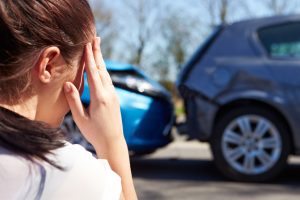
Drivers and passengers put a lot of faith in the brake system of their vehicle, whether it is a 4,000 pound car or minivan or an 80,000 pound eighteen wheeler. The brake system is one of the most important safety mechanisms on the road and it plays a crucial role in preventing tragedies.
You can do your part to keep yourself and others safe by knowing the warning signs of brake failure and what to do about it.
Warning signs of brake failure
Your senses are your best friend when it comes to detecting brake problems.
- Sights – If your brake warning light turns on, get your brakes inspected.
- Sounds – Grinding, screeching, and other piercing noises should alert you to a problem with your brake pads or shoes. Do not wait any longer than necessary; if you do not have worn brake pads replaced right away, they could cause more extensive (and expensive!) repairs to other parts.
- Smells – If a strong or offensive odor wafts from your tires, it may be unsafe to drive.
- Physical changes – If you need to press the brake pedal farther than usual to achieve the same braking result, or begin to feel sensations like vibrations or pulsing, it is time to take action.
What to do if your brakes are failing
Brake failure in an emergency is dangerous and terrifying, but you can reduce the likelihood of tragedy by knowing in advance what to do.
- Keep calm. You need your attention on the road so you can take appropriate actions.
- Alert other drivers. Turn on emergency flashers and honk your horn so other motorists will be aware that there is a problem.
- Reduce your speed. Even without functioning brakes, you can remove your foot from the accelerator and carefully navigate to the shoulder or right-most lane. It can help to downshift the engine.
- Pump the brakes if the vehicle does not have anti-lock brakes, or give the brake pedal a firm push if it does.
- Slowly engage the parking brake, but only after the speed has been reduced. If you engage the parking brake too forcefully, the wheels could seize.
Liability when brake failure causes an accident
Sometimes brakes fail because a driver did not maintain the vehicle properly. Sometimes it is because of a manufacturing defect. Sometimes it is another reason entirely. The reason will affect who may be liable for the accident and resulting injuries.
A driver has a duty to keep brakes, tires, and vehicular equipment in good repair, and if his or her failure to do so leads to the accident, they may be liable. If, on the other hand, the failure is due to a faulty product or professional repair, another person or entity may be legally responsible. The other drivers may also be partly or fully liable based on their actions.
Given the many variables, if you have been injured in an accident, speak with a NY & NJ car accident lawyer at KGG.
The personal injury lawyers of Kantrowitz, Goldhamer & Graifman P.C. have been helping people in New York and New Jersey for over three decades. Contact us today to schedule a free confidential case review. We are available to meet in our Rockland County or Bergen County office for your convenience.
Additional Brake Failure Resources:
- Firestone, Know the Signs & Stay Ahead of Brake Problems, http://blog.firestonecompleteautocare.com/brakes/know-the-signs-and-stay-ahead-of-brake-problems/
- CNN, Most common signs of brake failure, http://www.cnn.com/2008/LIVING/wayoflife/04/03/aa.brake.failure/index.html
